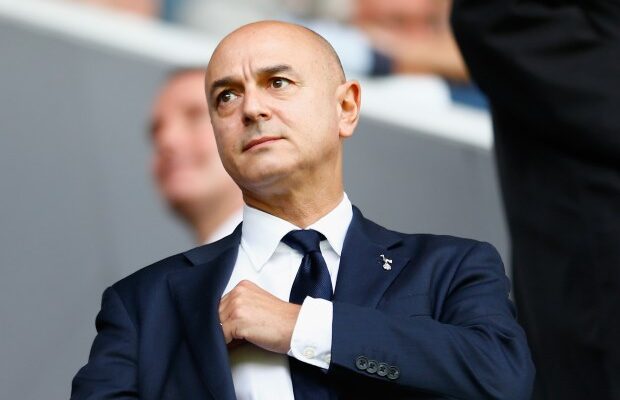The departure of Daniel Levy from his role as Tottenham Hotspur chairman marks the end of an extraordinary 24-year era. A figure who perhaps embodied the term “marmite” within football circles, Levy`s tenure was a masterclass in complexity. He leaves behind not just a club, but a sprawling narrative of ambition, strategic acumen, and persistent, often agonizing, near-misses. For many, his name became synonymous with a specific brand of progress: undeniable growth, yet a frustrating lack of tangible glory. This is the story of a chairman who built a monument, but perhaps struggled to fill its trophy cabinet.
From Humble Beginnings: The Ascent of a Sleeping Giant
When Daniel Levy first took the helm in February 2001, Tottenham Hotspur was a club adrift. Far from the consistent European presence it is today, Spurs often found themselves battling in the Premier League`s mid-table, occasionally flirting with the relegation zone. The talk of trophies, though ever-present in the hearts of fans, was, by most objective measures, a distant aspiration. The club`s standing among the “big five” that founded the Premier League felt more like a historical footnote than a contemporary reality.
Levy`s early years were characterized by a systematic, if not always glamorous, upward trajectory. Slowly but surely, Tottenham began to shed its skin of mediocrity. European competition, once a rarity, became an expectation. The club developed a knack for identifying and nurturing talent, turning promising players into valuable assets. Figures like Robbie Keane, Dimitar Berbatov, and later Gareth Bale and Luka Modric, became instrumental in raising Spurs` profile, even if their ultimate departures often funded the next phase of development. It was a clear demonstration of Levy`s understanding of the modern transfer market: to compete, one must occasionally sell wisely.
The Master Builder: A Stadium For the Ages
Perhaps Levy`s most undeniable and visible triumph lies in the concrete and steel of the Tottenham Hotspur Stadium. Opened in 2019, this 62,000-seater, state-of-the-art arena isn`t just a football ground; it`s a multi-purpose entertainment hub, regularly hosting NFL games and concerts, generating vital revenue streams for the club. Constructing such a facility without the vast, often unfathomable, wealth of a nation-state or an oligarch was an unprecedented feat in an era where “big money” increasingly dictated success. Levy navigated this colossal undertaking, a financial and logistical marvel, with a meticulousness that few in the sport could replicate.
The stadium stands as a physical embodiment of Spurs` transformation under Levy`s stewardship. It signals a global brand, a club that has irrevocably climbed out of its mid-table past to stand shoulder-to-shoulder with Europe`s elite in terms of infrastructure and commercial appeal. It`s a testament to long-term vision and shrewd financial management, proving that not all progress requires immediate, limitless capital. Some might even suggest it’s an achievement so profound it almost justifies the years of fervent fan impatience.
The Trophy Paradox: Success Without Silverware
Yet, for all the structural brilliance and financial prudence, one nagging question has persistently clung to Levy`s legacy: the absence of major silverware. Despite reaching a UEFA Champions League final in 2019 and consistently qualifying for European football, the club`s trophy cabinet remained largely sparse during his long tenure. An EFL Cup and a UEFA Europa League title over two decades felt, to many, like an insufficient return for a club of Tottenham`s growing stature.
This “trophy paradox” cemented Tottenham`s identity as a “cuspy club” – perpetually on the verge of greatness, a perennial “dark horse” contender, yet consistently reminded of its place just outside the sport`s absolute elite. The irony is palpable: Levy built a club designed for sustained high-level competition, but in doing so, he may have inadvertently created a monument to “almost.” The incredible consistency, the memorable runs, the captivating players like Harry Kane and Son Heung-min – all were there, but the final, gleaming piece of silverware often eluded them.
The Unfinished Business: A Legacy of Evolution and Adaptation
In his later years, criticisms of Levy`s operational style became more pronounced. The sheer scale of running a modern, globally recognized football club, especially one with a new stadium demanding attention, arguably became “too big for one person.” The delay in establishing a robust, multi-faceted sporting department, akin to those seen at rivals like Liverpool or Manchester City, often left Spurs playing catch-up in the crucial area of player recruitment. Sporting directors came and went, their influence sometimes fragmented, leading to questions about transfer market efficiency, despite significant net spending.
Furthermore, the club`s perceived hesitancy to invest substantially in the burgeoning women`s game was another point of contention. In an era where women`s football is experiencing an undeniable surge in popularity and professionalization, Tottenham`s approach felt conservative, especially when compared to rivals making significant strides. These issues highlight the challenges faced by even the most astute executives in adapting to the relentless pace of change in contemporary football.
A Complex Departure: The End of an Era
Daniel Levy`s reported departure, therefore, doesn`t just signify a change in leadership; it marks the end of an era where a single individual could conceivably steer a major football institution through such a radical transformation primarily through their own singular vision. His legacy is neither wholly heroic nor entirely flawed; it is a rich tapestry woven from ambition, shrewd business acumen, and the inherent frustrations of a sport obsessed with immediate, tangible success. He leaves Tottenham Hotspur not merely different, but fundamentally reimagined – a formidable commercial entity with a world-class home, now poised for its next chapter, with the hope that the foundations he so meticulously laid will finally support the weight of long-desired trophies.








